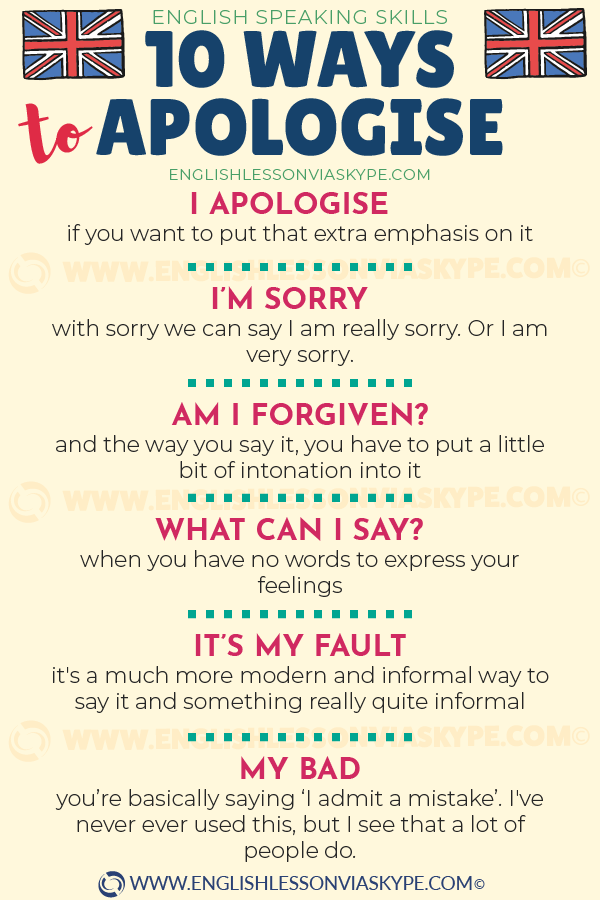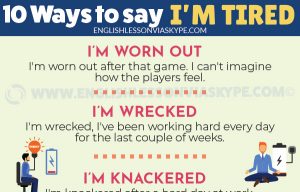Don’t say sorry. Learn 10 better ways to apologise in English.
This is Harry and welcome back to my English lessons and helpful grammar tips to help you to speak and write English in a better way.
Table of Contents
Harry
10 Better Ways to Apologise in English
Share and help other students to improve English skills!
Today I’m talking to you about ways to apologise.
This is very easy for a man to do, to apologise because we spend our lives doing it. If you’re married, you know all about it. Here are the different ways in which you can apologise in English.
Intermediate to Advanced English Marathon

INSANITY: doing the same thing over and over again and expecting different results.
Albert Einstein
- What you'll learn:
- better understanding of more complex grammar structures
- advanced English vocabulary words
- British & American slang
- perfect your listening skills through practing different accents
- This marathon is for you if you're:
- stuck at an intermediate English level
- tired of confusing explanations
- a mature student
- shy & introverted
Simply,
I apologise
I should’ve got you some flowers. I forgot I was busy. I really apologise.
So if you want to put that extra emphasis on it, I apologise. Or I really apologise.
Or simply
I am sorry
Or I am very sorry. Or I am really sorry.
With some of these words, you’ll see like apologise, we can say, I really apologise. And with sorry we can say I am really sorry. Or I am very sorry.
Sometimes very and really but not always.
So you make a big mistake. You forgot about your birthday. You didn’t send the card.
Oh, I’m really, really sorry. OK. It’s my fault.
10 Better Ways to Apologise in English
am I forgiven?
Another nice way to say I apologise. Am I forgiven?
And the way you say it, you have to put a little bit of intonation into it.
Am I forgiven? I’m sorry. It won’t happen again.
You’ve put as I do, you put the white clothes in with the other coloured clothes. A major war.
Am I forgiven? I didn’t mean to destroy your favourite t-shirt.
So am I forgiven or do you forgive me? It’s exactly the same.
what can I say?
When you’ve done something, you’ve no words to express your feelings, you’ve upset your partner. So you just simply put your hands to your chest and say:
What can I say? I’m sorry. Please forgive me.
And if you’ve said something or done something that you really know you shouldn’t have done, then you can use these words.
I shouldn’t have said
or
I shouldn’t have done that
So you know you’ve upset the mother-in-law while she was really annoying me.
Well, I know, I shouldn’t have said what I said.
You know that child was really bold. So you sent him to his rooms where there’s no Wifi, there’s no supper and no treats for him. And then of course your wife says:
👧🏼 That’s not the way to deal with it. You know, he gets very upset very easily.
👦🏻 I know I shouldn’t have done that, but he really annoyed me and I did get a little bit frustrated, so I’ll apologise later and see how he is.
If you want to be really formal about it, you can use an expression
10 Better Ways to Apologise in English

Share and help other students to improve English skills!
10 Better Ways to Apologise in English
I beg your pardon
I know, that’s quite old fashioned.
You don’t hear it so often, but it’s something my mother and my grandmother used to use and it’s quite formal.
It’s good. It’s quite nice. I beg your pardon. You know, if you bump into somebody when you’re walking along the street:
Oh, I beg your pardon. That was my fault. I wasn’t looking where I was going.
Or if you walk into a room and you open the door on, there’s a lady or older gentleman trying to get out the door, you might step back and say:
I beg your pardon. Please come through first.
So you’re using it in that way to apologise for your manners.
As I said earlier on, we can just say
it’s my fault
Put your hands up. My fault.
So it’s a much more modern and informal way to say it and something really quite informal.
And I’ve never ever used this, but I see that a lot of people do.
my bad
That meaning it’s my fault, my mistake, my bad.
So something you’ve done, you forgot to put the camera into the bag. So when you get to the picnic and say:
👱🏻 Okay, let’s take a few photographs.
👧🏻 Oops, I didn’t put the camera in the bag. My bad.
Or simply
I am to blame
We’ll have to look for somebody. Somebody has to take the blame when something goes wrong, but I’m to blame for that. Hands up, it won’t happen again.
So let me just run through all of those again for you just to give you one more hearing.
- I apologise
- I’m sorry (or I am very sorry)
- Am I forgiven?
- Do you forgive me?
- What can I say?
- I shouldn’t have said that
- I shouldn’t have done that
- I beg your pardon
- My fault
- I’m to blame
- My bad
And with a lot of these, you have to put some intonation in it.
So the person that you’re talking to really understands that you mean the apology.
Subscribe to my YouTube Channel Learn English with Harry and join me on www.englishlessonviaskype.com and I’m going to catch up with you very soon. Thanks for listening.
More Information
For more information on English phrasal verbs, English collocations and English idioms, check out the following links:
20 Phrasal Verbs related to EDUCATION
English idioms related to DREAMS
You will love these English lessons

How To Use Stative Verbs In English
Stative verbs in English. What are they? Difference between stative and dynamic verbs. Can we use stative verbs in continuous


10 Ways to Say I’m Tired in English
Why do you need to know different ways to say I’m tired in English? For example, if you’re planning to


Ways To Say You’re Wrong In English
Learn ways to say “You’re wrong” in English. In this lesson, we’ll explore advanced English alternatives that you can use